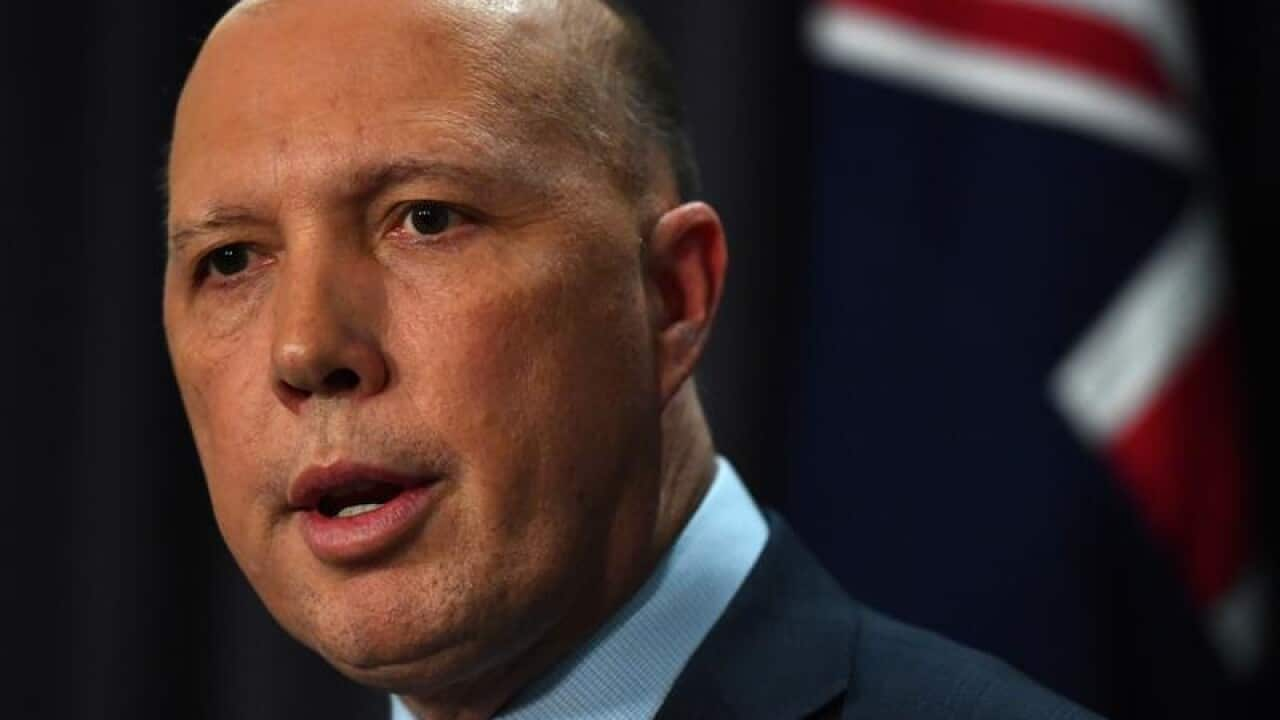Foreign fighters seeking to return home to Australia could soon be banned from doing so for up to two years.
Home Affairs Minister Peter Dutton introduced legislation to the lower house on Thursday which would temporarily ban any citizen suspected of extremism from returning to Australia until protections are in place.
"That is why we have introduced a bill into the parliament today - to temporarily exclude for up to a two-year period some of those Australian citizens that have been working with ISIL and now have the capacity to come back, to put together an IED (bomb) or to walk into a food court or other place of mass gathering and cause serious death and carnage," Mr Dutton said.
He said the bill would deliver "adequate forewarning" so that Australians of counter-terrorism concern would only return "into the waiting arms of authorities".
Mr Dutton says 230 Australians have travelled to Syria or Iraq to join overseas conflict, with about 80 still active.
Many are likely to try and return home in the near future.
The proposal builds on laws which were introduced to parliament in February, before the legislative slate was wiped clean at the election.
Mr Dutton says the new version fills in concerns from Labor and legal experts that the exclusion orders could render people stateless.
The bill now establishes a reviewing authority to provide independent oversight of the minister's decision to create a temporary exclusion order.
In urgent circumstances a TEO will be introduced immediately pending review.
The reviewing authority will be appointed by the attorney-general and could include former judges and serving Administrative Appeals Tribunal members.
If the independent review finds the minister's application for a TEO is not lawful, it will be struck out.
Parliament's powerful intelligence and security committee have recommended the legislation be passed, subject to 18 changes.
Home Affairs officials have previously insisted Australia needs the powers to stop dangerous terrorists and jihadi brides from returning until authorities are ready to deal with them.
The minister could revoke the exclusion order to allow someone to enter Australia under a return permit, which may include conditions relating to when and how the person enters the country.
They would also have to register where they live, work or study, and any plans to travel within Australia or abroad.
The proposed 12-month return permit could also include conditions around using technology.
"Conditions would only be imposed where considered necessary for the purpose of preventing terrorism-related activities," Mr Dutton said.
Exclusion orders do not permanently prevent people from returning to Australia, and they will also be able to apply for a return permit.









